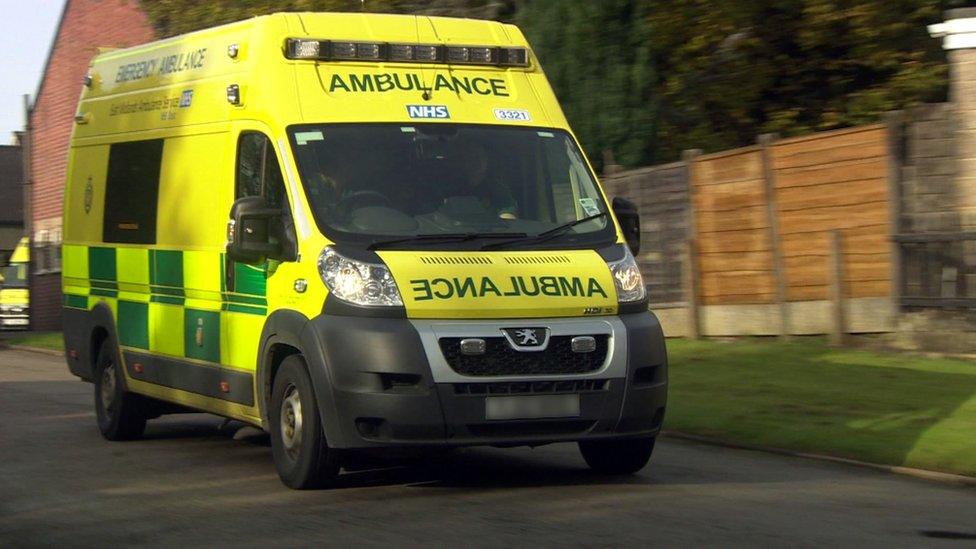Father of severely ill boy told ambulance would be six hours
- Published
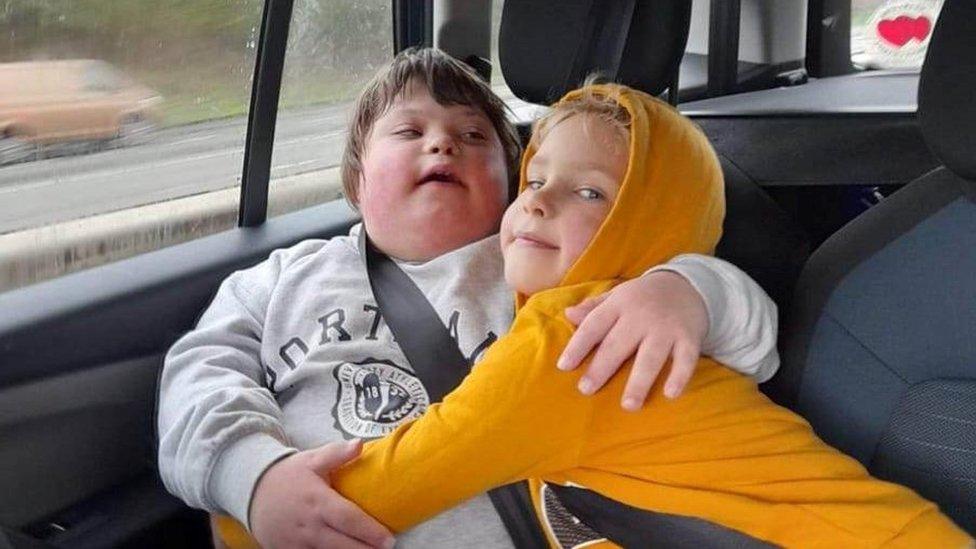
Taylor-James (left), with his younger brother, suffered a cardiac arrest a year ago
The father of a sick disabled boy now in intensive care has spoken of the "terrifying" moment they were told they faced a six-hour wait for an ambulance.
Taylor-James was "struggling to breathe and his lips were blue" when his mother called 999 in December.
His father Stuart said he had no choice but to leave work and drive his 13-year-old son to Nottingham's Queens Medical Centre (QMC) himself.
East Midlands Ambulance Service (EMAS) has apologised to the family.
Taylor-James is non-verbal autistic and has Down's syndrome along with sleep apnoea.
He suffered a cardiac arrest a year ago and is now being treated for a lung infection.
Stuart, 42, described the illness as "like pneumonia but a little bit worse".
He said they made the emergency call on 19 December.
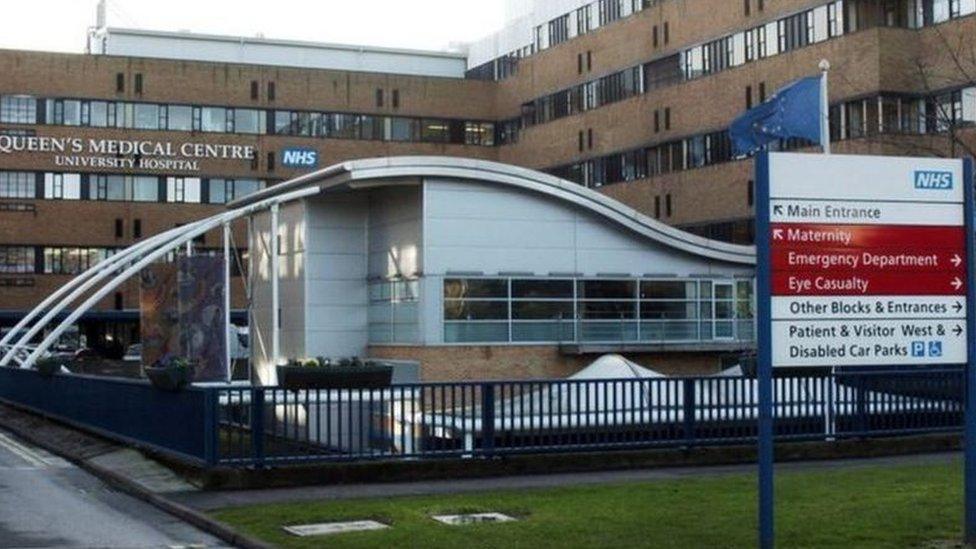
The father drove his son to the QMC himself
"It was one of the scariest moments of my life," Stuart told the BBC while visiting Taylor-James in hospital.
"I dropped everything at work when Vikki told me the wait would be up to six hours. It took me 15 minutes to get home and 20 minutes to get to the QMC.
"I was constantly trying to talk to him; his lips were blue and he was nodding off. I wished I had a blue light on my car so I could get through the traffic.
"I got him there safely and he was seen to immediately by staff but the whole situation was horrendous."
The Rolls-Royce worker, from Spondon in Derby, said he understood the health service was under severe pressure but was keen to raise awareness for other families in a similar situation.
"We were lucky I've got a car but what about the people who don't? You can't rely on putting your seriously ill son, grandad or mum in a taxi instead of an ambulance," he said.
"People need to be aware of how bad the current situation is."
Handover delays
EMAS said it was "deeply sorry" and "recognises the distress that this will have caused him and his family".
The service said it was facing huge shortages in resources due to handover delays faced by ambulances waiting to drop off patients at packed hospitals across the country.
Craig Whyles, divisional director for Derbyshire at EMAS, added: "We continue to experience a sustained level of life-threatening and serious emergency calls and have to prioritise the sickest and most severely injured patients first.
"Therefore, some callers may be advised that there could be a delay in our response, and urge patients that if they are asked by our 999-control room to make their own way to hospital, then they should do so - either via taxi or asking a friend or family member to drive them."

Follow BBC East Midlands on Facebook, external, on Twitter, external, or on Instagram, external. Send your story ideas to eastmidsnews@bbc.co.uk, external.
Related topics
- Published4 January 2023
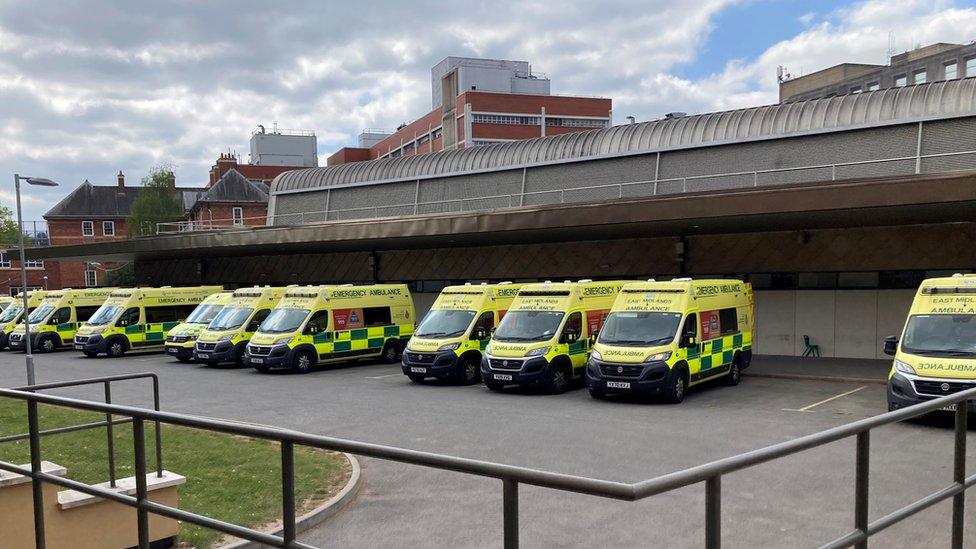
- Published22 December 2022
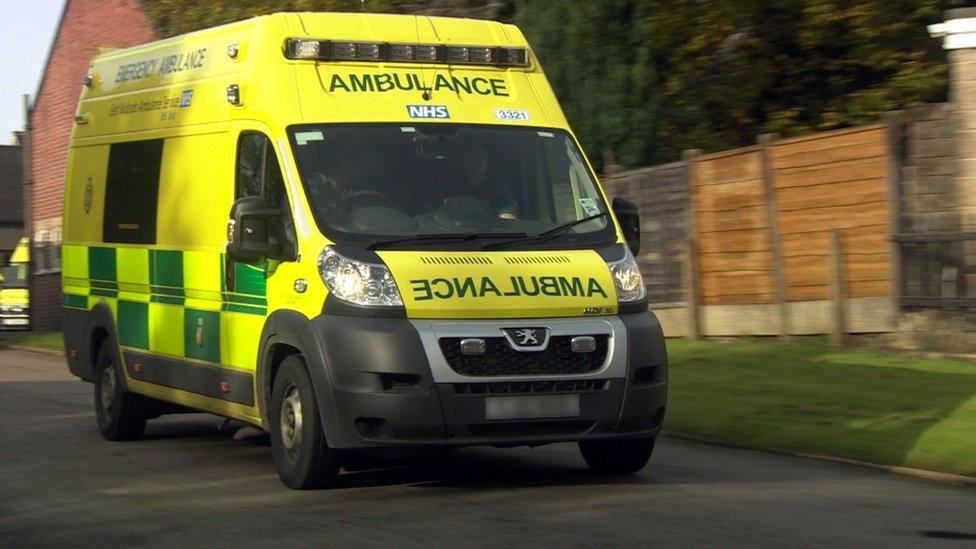
- Published3 January 2023
